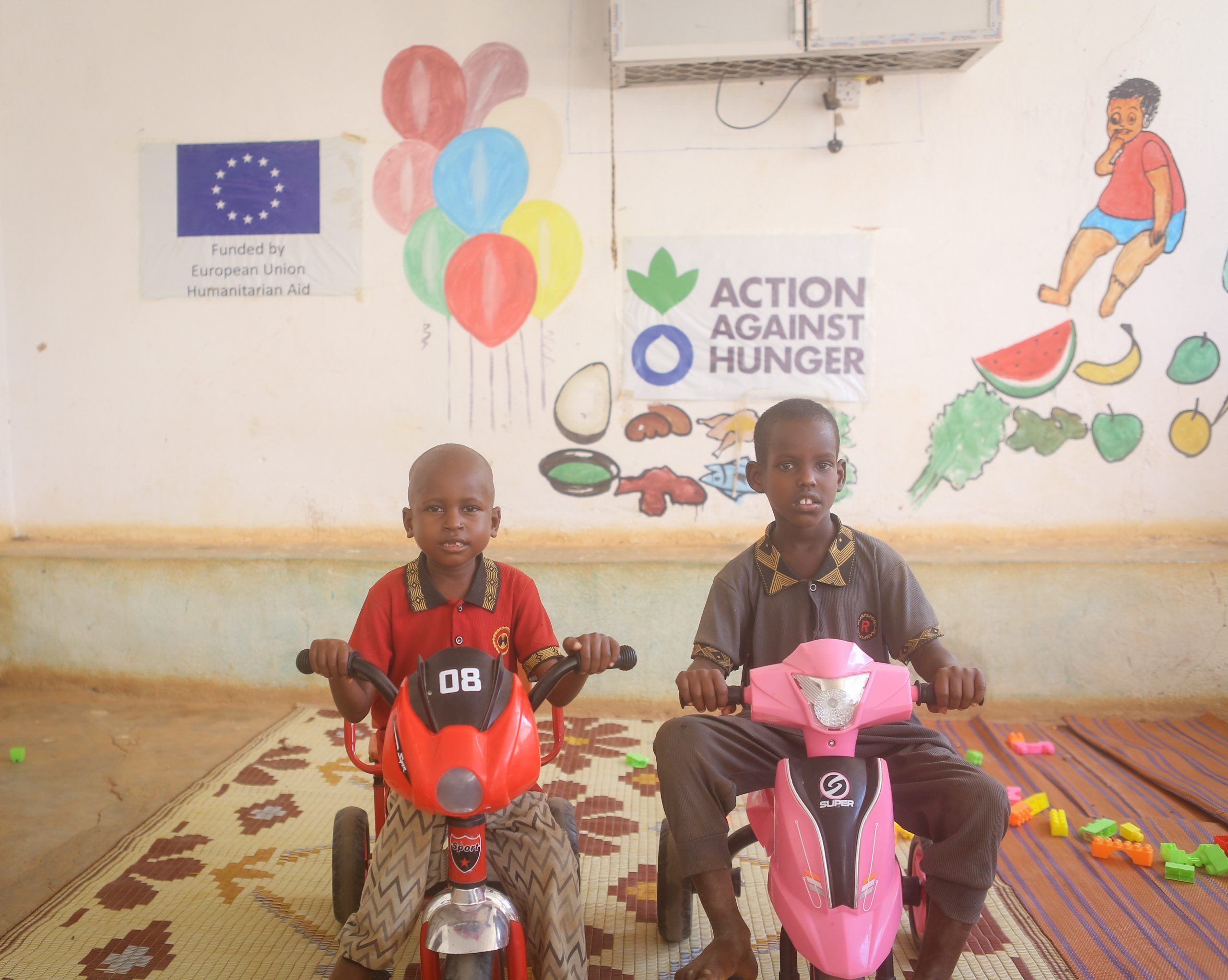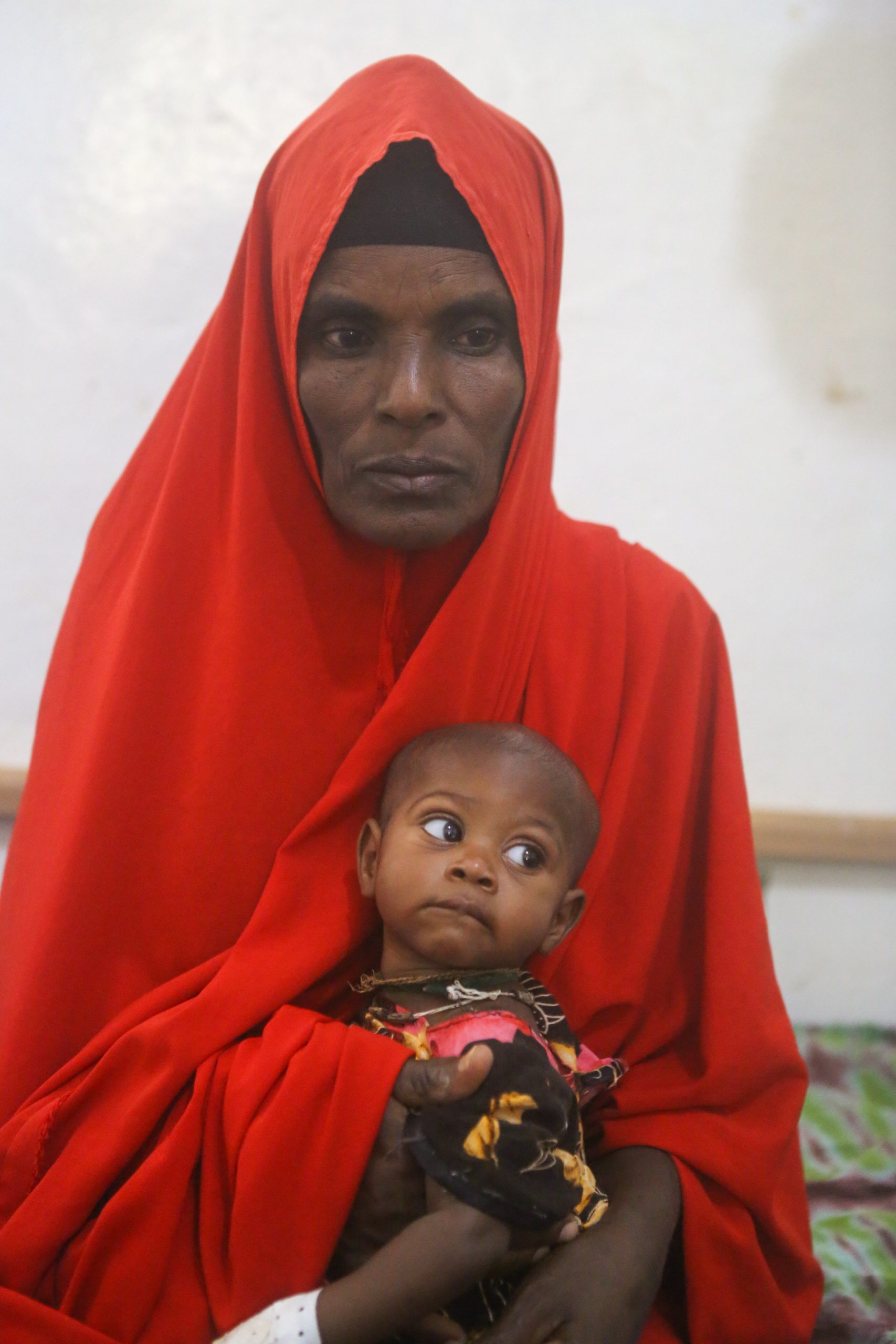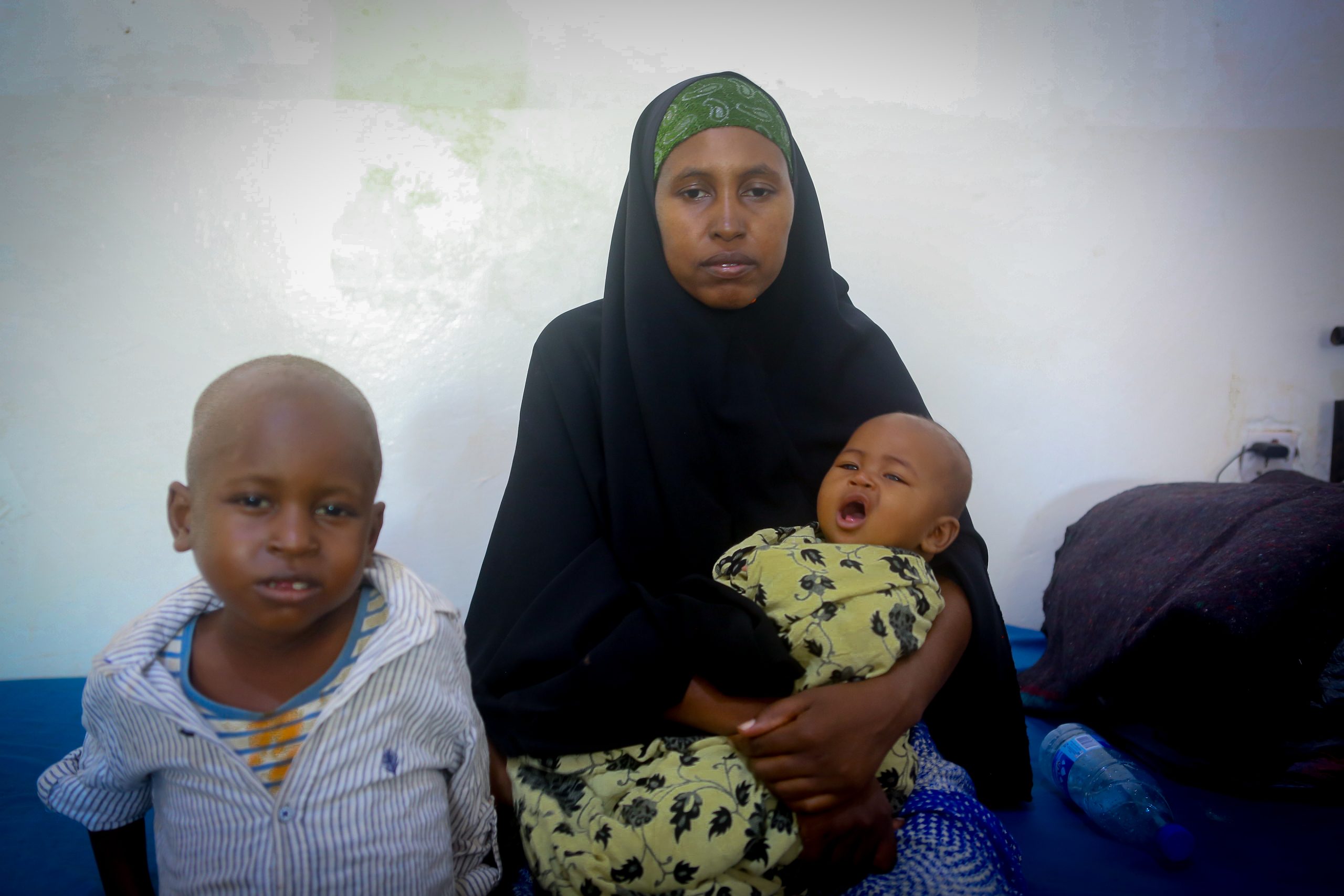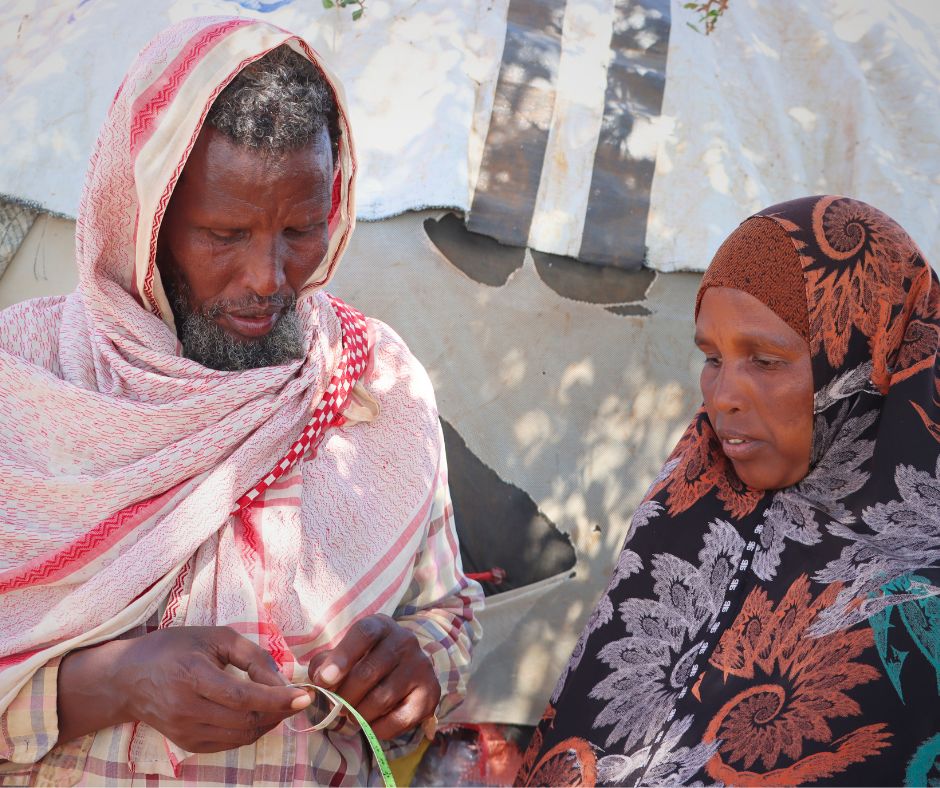For months, Suldana Aliyare watched helplessly as her six-year-old son, Mohamed, grew weaker. She could not afford treatment, as they barely had enough food. In Somalia’s Bay region, where Suldana and her family live, climate change has severely impacted communities, forcing them to work hard just to survive.
The last time Suldana’s family harvested crops was two years ago. They managed only a few bags of beans and maize. Since then, erratic weather—either extreme drought or destructive floods—has made farming impossible. With no food from their farm, they were forced to move to a displacement camp, relying on her husband’s inconsistent labor work to survive.
During a routine visit to the displacement camp where her family was living, a community health worker saw the severity of Mohamed’s condition. He was rushed to Bayhaaw Hospital, where tests confirmed he had tuberculosis, and his condition was critical. The stabilization center typically only admitted children under five, but the staff made an exception—turning him away would have been a death sentence.
For two weeks, Mohamed received life-saving treatment, including therapeutic feeding and TB medication. Slowly, he regained his strength, even playing in the center’s child-friendly space. “For months, we couldn’t afford his treatment, but the support we received lifted that burden,” Suldana shared as she watched her son make new friends.

While in the hospital, his mother also gave birth to a new baby, Hawa, bringing even more joy to the family.
On December 17th, 2025, Mohamed was discharged. Suldana was eager to return home—her eldest daughter had been missing school as she was taking care of her siblings, with her husband unable to work while she stayed by Mohamed’s side. “Things will get better now,” she said.
With Mohamed’s recovery, Suldana will be home taking care of her children, her husband will return to work, and her daughter can go back to school.

In the next ward, 60-year-old Hirsiyow Liiban cradled her 13-month-old granddaughter, Fadumo. They had traveled 90 kilometers from Ufurow to Baidoa in search of medical help.
Fadumo’s mother had died from excessive bleeding after childbirth—a tragic consequence of inadequate maternal healthcare in areas where access is limited. “We rely on traditional birth attendants, older women who lack proper equipment,” Hirsiyow explained.
For over a year, she had fed Fadumo sugar solution, the only thing she could afford. By the time they reached the hospital, the baby was severely malnourished. Doctors acted fast, providing urgent care. While Fadumo’s recovery is ongoing, her condition is improving.
But back home in Ufurow, food is scarce. The November rains failed, destroying the crops Fadumo’s father had planted. For families like hers, food insecurity remains a daily struggle.
Beyond Healthcare: A Lifeline for Families
Lifesaving interventions by Caafimaad Plus and its partners are providing critical care to families facing malnutrition, disease, and food insecurity in Somalia. Through emergency medical treatment, therapeutic feeding programs, and community health support, Caafimaad Plus ensures children like Mohamed and Fadumo receive the care they need.
Medical treatment alone is not enough. This is why Action Against Hunger and its partners in the Caafimaad Plus Consortium connect families leaving stabilization centers with emergency cash assistance, mother-to-mother peer support groups, and nutrition programs, thanks to EU Humanitarian Aid funding.
Yet, the challenges ahead are daunting. In 2025, 4.4 million people in Somalia will be at risk of severe hunger. Without urgent action, families like Suldana’s and Hirsiyow’s will continue to struggle.
Caafimaad Plus Consortium, the largest health consortium in Somalia, comprises six members: Action Against Hunger (lead), SOS Children’s Villages, International Medical Corps, Concern Worldwide, Trocaire, and Juba Foundation. Last year, the consortium reached over 1.5 million families, but funding gaps limit our ability to assist more people. Your support is crucial in helping us reach and support more families in Somalia.
🔹 How can we ensure no child suffers from hunger and treatable illnesses? Share your thoughts.







